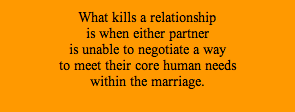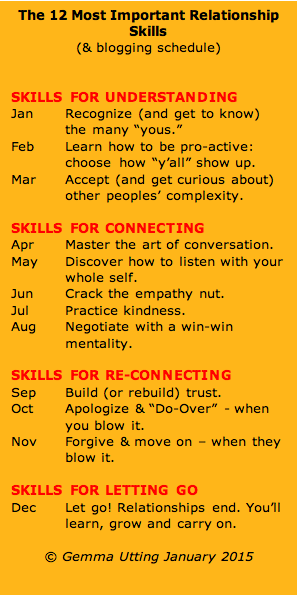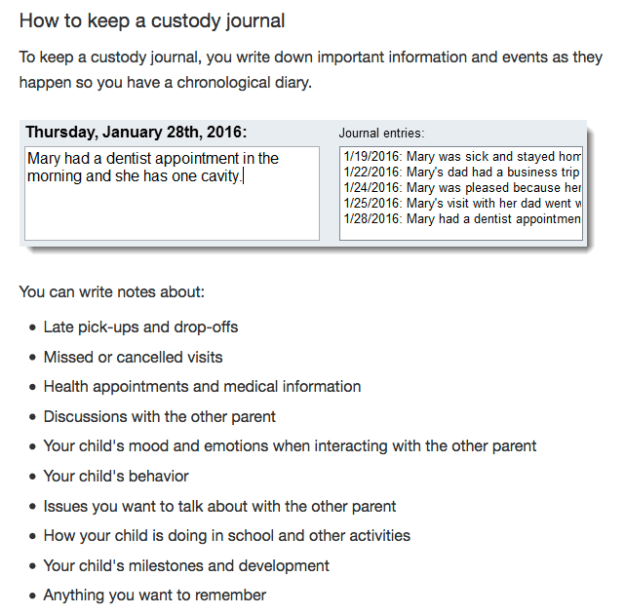And no, it’s NOT what you think!
Despite the fact that numerous couples interviewed after divorce cite things like ~
- Incompatibility
- Adultery
- Boredom
- Abuse
- Marrying Young
(from Legal Zoom)
and despite the fact that numerous autopsy studies after a divorce cite things like ~
- Getting in for the wrong reasons
- Lack of individual identity
- Becoming lost in the roles
- Not having a shared vision of success
- The intimacy disappears
- Unmet expectations
- Finances
- Being out of touch … literally
- Different priorities and interests
- Inability to resolve conflicts
(thanks to Your Tango)
these remain symptoms of a much deeper problem, not the problem itself.

It’s as simple and as challenging as that!
Here’s why.
Core human needs will ultimately trump everything else.
What are core human needs?
I love using Tony Robbins’ list. It’s short, memorable and in alignment with Maslow – the “grandfather” of needs identification.

Below are some simple stories illustrating how these needs might be unmet in a relationship. I use the six terms Tony Robbins uses:
- Certainty
- Variety
- Significance
- Love and Connection
- Growth
- Contribution
I use actual examples from my clinical practice, with identifying names and circumstances changed, to build my case that it’s not the specific “crime” that brings the relationship down. It’s the inability of partners to negotiate, to advocate for their needs.
CERTAINTY / VARIETY
Max and Ira were international circus performers (yes – I meet fascinating clients!). They met when Ira was hired by the same prestigious group of performance artists and spent three years traveling the world with the group. They fell in love. They committed to one another and spent nearly every waking moment together for five years. Somewhere along the way, Max’s capacity for constant shift and adventure took a toll on another deeper need he felt for stability. For nesting. For settling down into a lifestyle he could count on. He wanted to be sure he’d know where he’d be 3, 6 18 months into the future. He wanted to put down roots. And he wanted Ira by his side.
Ira was still enchanted by the lifestyle that circus performing gave him; international travel, astonishing highs, a degree of fame. That almost lottery-ticket thrill of not knowing exactly what his apartment or city would look like 6, 9, 18 months out. He adored international vagabonding and performance art and he wanted Max by his side.
They knew other couples in their circus community who managed marriages and even families, but they could not negotiate a solution.
Max’s need for certainty, and Ira’s need for variety were, for these two, the stumbling blocks that ended their relationship.
As an interesting aside, the fastest growing segment of the population getting divorced is the over 50 set. It’s super high over 65. But, as Bridgid Schulte writes in The Washington Post “More than half of all gray divorces are to couples in first marriages. Indeed, 55 percent of gray divorces are between couples who’d been married for more than 20 years.”
Folks have been unable to negotiate sufficient variety in their lives or marriages… they’ve been drowning in their own long-outdated need for certainty!
SIGNIFICANCE
Oh, I could name scores of couples here where one partner was unable to communicate to their spouse / lover / former adored chosen-one how much they ached to be really seen. To be considered as relevant. As special. As worthy of time and attention.
But I’ll tell you the story of Cassandra and Rex. The classic beginning, they met in med school. Rex was a rare male going into Psychiatric nursing while Cassandra had a knack for surgery. They courted in the exhausting crucible of residency and first jobs and both were initially deeply supportive. They had a wide circle of friends, were generous and social, and married with a showy bash funded by Cassandra’s wealthy parents.
They came to me about seven years later. Their careers were flourishing. They were both superb at what they did, well paid, articulate, well-respected in their fields.
The core issue?
Underneath it all, Rex believed Cassandra did not value him, who he was, or his profession. He noticed how certain unkind comments slipped out at gatherings; how she said the word “nurse;” how she’d blow off commitments they had as couple with his friends, for non-emergency get-togethers with her friends (all surgeons).
The way Cassandra treated Rex fed into his own core insecurities. Rex had a core Part of himself who felt insignificant in his own eyes. This part needed Casandra to value him all the more. Meanwhile, Cassandra too had a powerfully insecure part cultivated in her high achieving family home. This part leveraged a sense of significance by looking down on Rex.
The way forward for them as a couple would have been for them each to meet and heal their core insecurities. They each needed to feel significant in their own eyes first. Absent that, their way of meeting their personal need for significance was coming at the expense of their partner.
But because they had spent so many years hiding from themselves, because the system they had evolved had Cassandra managing her insecurities by letting Rex see her as highly significant and Rex managing his insecurities by having Cassandra as his wife, they had caused one another too much pain and decided to divorce and move on.
CONNECTION AND LOVE
Because the need for love and connection is so central in relationships, it’s the inability of partners to negotiate this prime need that brings most couples in to see me.
Once that loving feeling has worn off, how do two people continue to express and receive love from one another?
We may have moved into the 21st century, but Della and Rob’s situation is repeated with subtle variations in (dare I say this?) many couples in the USA?
Once the post-romantic-love high has worn off, couples settle into the business of living. Earning a buck. Making a home. Raising a family. Both Della and Rob love their work and in fact, increasingly, getting out the door in the morning to go to work is the highlight!
It’s on the home front that things are a battleground. Della has been totally unable to get Rob to see that “if he loves her” he will ~
- Pick up his laundry
- Fold the towels and put them away
- Do the dinner dishes
- Cook occasionally
- Help her teach manners to their hyper-active toddler
- Help her discipline their overly-sassy-pre-teen
- Vacuum
- Be OK with her time spent with girl friends on weekends
And Rob is increasingly loosing the battle to negotiate for the two things that spell love for him ~
- Weekly sex
- Weekend TV sports
As these individual but differing recipes-for-love go un-expressed and un-negotiated, they remain unmet. Each partner feels increasingly alone in the marriage, and they begin to drift apart. By the time Della and Rob came to see me they were ready to hit the “eject” button out of their marriage without having done the work necessary to prevent them from re-creating this same scenario again. The work? To figure out their core needs and learn how to negotiate for them fair and square.
For too many folks it seems easier to just start over with pockets full of hope than to do the important inner work that no one has taught them how to do anywhere along the way. (Yes, you hear my frustration with our educational system!)
GROWTH
Healthy couples allow space and room for each partner to grow. When one person wants to get a degree, start a business, travel the world, fly airplanes or learn Arabic and work with the International Rescue Committee – how they negotiate this expansion is key.
Both sides have work here – the one negotiating for the new thing will be wise to be mindful of their partner’s needs (maybe for certainty, maybe for significance after this new event) and the partner being invited to embrace these expanded horizons will need to manage their own fears and perhaps invite their own aspirations.
Elise and Frank came to see me on the brink of divorce, but are now in some solid negotiations with themselves and one another.
Elise has a promising break with her acting career which could take her to New York. Frank is heading for tenure at a good University in the mid-west. It’s a crux move in their marriage. Fortunately they are both willing to look inside themselves to see what triggers these two opportunities are igniting, and what needs these opportunities are meeting for each of them, and one another. Thus informed, their negotiations are grounded in self-awareness and understanding which is allowing them both to be creative, flexible and willing to do the work necessary to have a marriage in which growth is not only possible, but supported with enthusiasm.
CONTRIBUTION
Maybe with a twist of irony, think American Sniper here. For those who don’t know the story, here’s a summary lifted from the Amazon publicity spiel on the link above.
“From 1999 to 2009, U.S. Navy Seal Chris Kyle recorded the most career sniper kills in United States military history. His fellow American warriors, whom he protected with deadly precision from rooftops and stealth positions during the Iraq War, called him “The Legend”; meanwhile, the enemy feared him so much they named him al-Shaitan (“the devil”) and placed a bounty on his head. Kyle, who was tragically killed in 2013, writes honestly about the pain of war—including the deaths of two close SEAL teammates—and in moving first-person passages throughout, his wife, Taya, speaks openly about the strains of war on their family, as well as on Chris.”
Clearly it sounds as though this couple did a remarkable job of negotiating a way to allow Chris’s desire to contribute to his fellow Seals to continue as long as it did. And, it put enormous strains on their marriage and family.
Living with a “legend” isn’t always easy…
***********************************
So if – as I have come to believe after nearly 20 years of working with couples – the #1 reason marriages fail and relationships end is because one or both partners is unable to negotiate a way to meet their core human needs within the marriage, then these three things need to happen.
-
We need to understand more about our own needs
We need to spend time with ourselves and ask ~
- What needs do I have?
- How do I meet my own needs?
- How do I choose which needs to meet if I have more than one and they seem to compete?
- How do I negotiate my needs when I’m around others?
-
We need to understand more about our partner’s needs.
As we are getting to know a potential partner, we need to ask ~
- What needs does my partner have?
- How does my partner meet his/her own needs?
- How does my partner choose which needs to meet if s/she has more than one and they seem to compete?
- How does my partner negotiate his/her needs around others?
-
We need to understand how to negotiate our needs as a couple.
As we consider building a relationship together, we need to explore ~
- What needs do we each have in this relationship?
- How do we each advocate for our needs to be met?
- What do we do when it seems as if our needs are in competition or mutually exclusive?
- What does each of us do when we feel our needs are not being taken seriously by our partner?
STAY TUNED!
This is a huge topic and I’ll be exploring it for the next 3 posts.
FEATURED IMAGE
Thanks to the Your Tango article referenced in this piece.
FIRST TIME HERE?
This is the latest article in a year-long series on the “12-most-important-relationship-skills-no-one-ever-taught-me-in-school-but-I-sure-wish-they-had.”
Click the box for the full list. →
If you’re interested in reading this blog in sequence, below are links to the series to date, beginning with the first posting at the top.
OVERVIEW
SKILLS FOR UNDERSTANDING
SKILL ONE ~ Recognize (and get to know) the many “yous.”
SKILL TWO ~ Learn how to be pro-active: choose how y’all show up.
SKILL THREE ~ Accept (and get curious about) other peoples’ complexity
SKILLS FOR CONNECTING
SKILL FOUR ~ Master the Art of Conversation
SKILL FIVE ~ Learn How To Listen With Your Whole Self
SKILL SIX ~ Crack The Empathy Nut
SKILL SEVEN ~ Practice Kindness
SKILL EIGHT ~ Negotiate with a Win-Win Mentality
- The #1 Reason Marriages Fail






